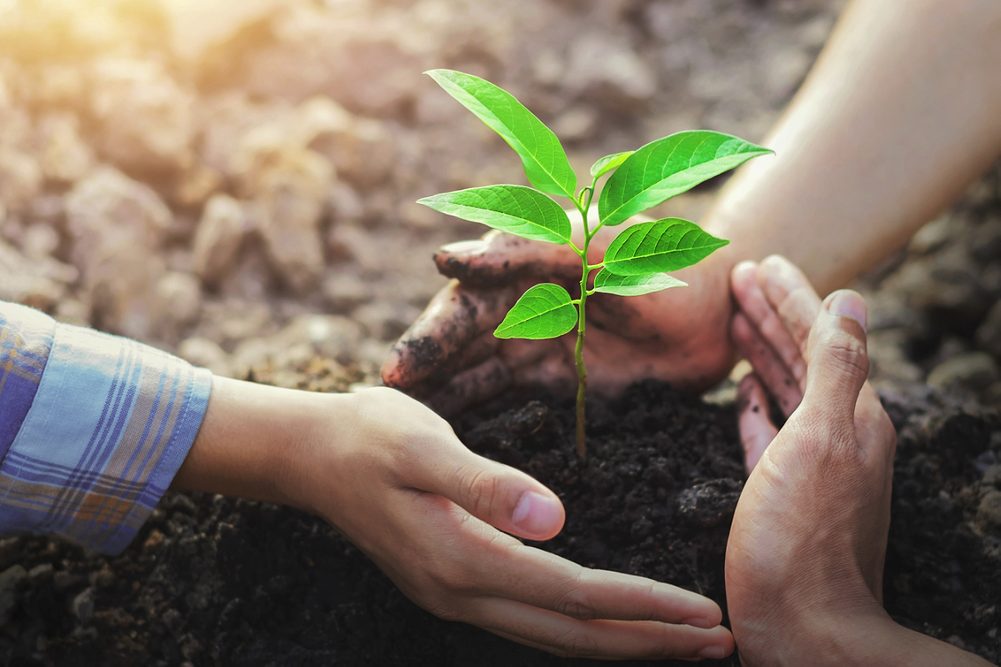MINNEAPOLIS — Over the past year, Cargill adopted global sustainability efforts to more quickly advance progress. The company established a science-based commitment to reduce supply chain emissions by 30% by 2030, a climate commitment to reinforce support of the Paris Climate Commitment.
The company recently outlined progress against sustainability goals in critical supply chains, including aqua nutrition, soy, cocoa and chocolate, palm, ocean transportation and beef. With a focus on advancing progress on land use, climate change, water, farmer success and human rights, the company is working across every supply chain to drive sustainable production, transportation and operations.
“The call for radical transparency is increasing,” said Jill Kolling, vice president of global sustainability, Cargill. “More than ever, our customers and consumers want to understand the story behind the products they buy. By investing and partnering on solutions to enhance transparency in the food system, we can deliver meaningful and sustainable impact on the ground and increase consumer confidence.”
Cargill Aqua Nutrition focuses on delivering animal health and welfare through feed and nutrition while supporting sustainable growth of the aquaculture industry. Cargill is working with seafood production industry to train them through local sustainability workshops, mobile labs and supporting sustainable practices.
In 2019, Cargill ranked sixth out of the top 30 seafood companies on the World Benchmarking Alliance’s Seafood Stewardship Index, which measures actual performance compared to the Sustainable Development Goals set by the United Nations. Another way Cargill is furthering its sustainability practices is by using soy that was certified to RTRS or ProTerra standards or was organic in its salmon feeds, supporting the company’s deforestation commitments.
Cargill’s soy sustainability progress is reported semi-annually and in the first half of this year the company focused on protecting forests and native vegetation in South America by:
- Mapping its Brazil supply chain to increase traceability
- Launched a new partnership with farmers in the Bahia region
- Continued its SSS certification program to provide an expanded market for soybeans grown through verified sustainable methods.
Regarding cocoa and chocolate Cargill is tackling traceability and child labor. The company is using barcoded cocoa bags and digital Cooperative Management Systems (CMS), 50% of sustainable cocoa beans in the global direct supply chain are now traceable from farm-to-factory. Cargill is implementing child labor monitoring and remediation systems (CLMRS) to address the labor issue in Côte d'Ivoire, Ghana and Cameroon.
In 2014, Cargill committed to eliminate deforestation in all commercial palm oil concessions in third-party supply chains by 2020 and is nearing that goal. In addition, the company has achieved 93% traceability to mills and 48% to plantations and continues to work toward its goal of providing traceability to plantations by the end of 2020 in high-risk landscapes, implementing a targeted, risk-calibrated approach.
Through its BeefUp Sustainability initiative, Cargill is working to drive progress toward its greenhouse gas reduction commitment. Some of that work includes:
- Cargill sponsored the Yield Lab Institute’s Manure Challenge, which guides startups as they develop solutions and products that enable economic and environmental benefits for farmers with effective manure management practices.
- In collaboration with Texas Tech University, Cargill is conducting a study to further understand the potential sustainability impact of cross-breeding dairy and beef cattle, which could result in decreased greenhouse gas emissions by improving overall productivity.
Concerning ocean transportation Cargill has been working toward creating a standard greenhouse gas (GHG) emissions reporting process by designing the Global Maritime Forum's charterers response to the Poseidon Principles. In addition, over the past two years Cargill has reduced its aggregated gross CO2 emissions by around 800,000 metric tonnes.
“Across our supply chains, we’ve demonstrated transparent progress against our sustainability goals, but there is still more to be done across the industry,” Ms. Kolling said. “With continued partnership and collaboration, agriculture is how we can assure the dependability of future supply chains, empower communities and contribute to the development of economies.”





